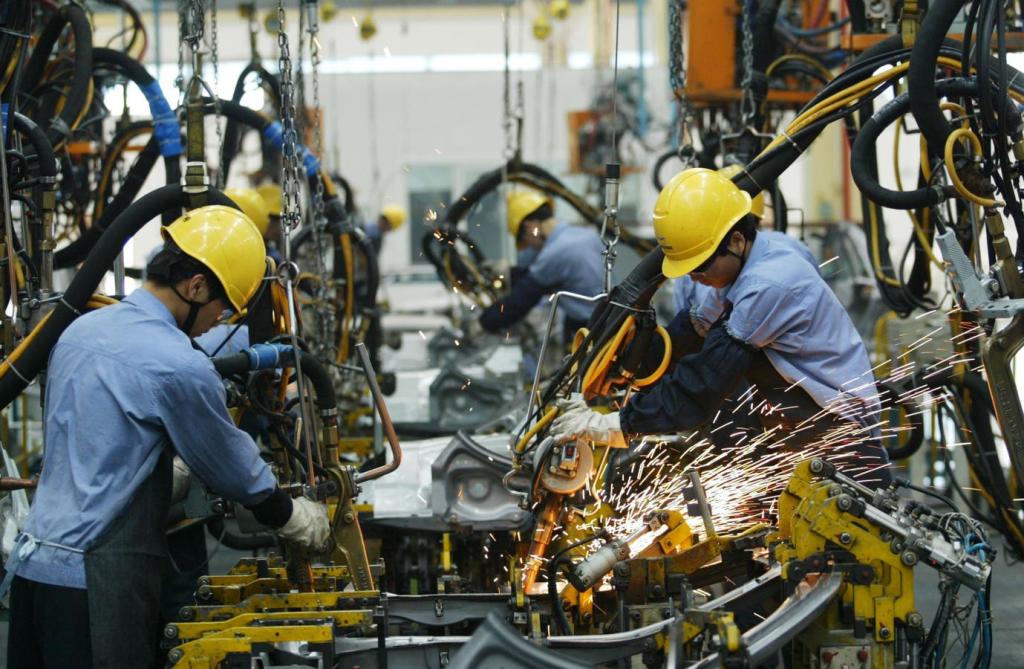Germany's Economic Struggles and Stagnation in 2024
Germany faces economic stagnation in 2024 as rising unemployment and structural challenges threaten recovery. Discover insights and potential solutions in our latest analysis.

Key Points
- Germany's economy is projected to stagnate in 2024, with growth forecasts revised down to 0% amid rising unemployment.
- Structural challenges, including high corporate taxes and slow adaptation to global market changes, hinder economic recovery.
- Despite current struggles, a slight increase in industrial orders signals potential for renewed growth if strategic reforms are implemented.
The German economy, once a beacon of stability and growth in Europe, now faces tumultuous times as predictions for 2024 suggest stagnation at best. With leading economic institutes downgrading growth forecasts, the nation is grappling with significant industrial challenges, spiraling unemployment, and concerns over structural weaknesses that could lead to prolonged economic hardship. This article delves into the current economic scenario, explores contributing factors, and highlights potential paths forward.
Stagnation and Declining Growth Predictions
Recent reports from the
-based
reveal alarming projections. Initially anticipating a modest growth of 0.4% for 2024, the forecast has since been revised down to a standstill at 0% growth. Similarly, the
(IfW) has adjusted its expectations, predicting a contraction of 0.1% this year. These downward revisions reflect deeper issues beyond mere temporary fluctuations in economic activity.
Many economists agree that the German economy is entangled in a structural crisis, characterized by diminishing productivity and insufficient investment in key sectors. According to Timo Wollmershäuser, Ifo's head of economic research, “Germany’s economy is stuck and is bobbing around in the doldrums, while other countries are feeling the upswing”. The automotive industry, traditionally a powerhouse for German exports, has been hit particularly hard, compounded by significant layoffs at major firms such as
.

Unemployment and Consumer Sentiment
Another distressing indicator of the economic state is the rising unemployment rate. Currently, figures show the unemployment rate is projected to reach about 6% in 2024, up from 5.7% in the previous year. This rise reflects broader economic stagnation, as job security wanes and households tighten budgets, leading to a decrease in consumer spending. With households being more cautious despite real income gains, private consumption remains weak, exacerbating economic stagnation.
The stark contrast between Germany and other emerging economies is particularly disheartening. While countries across the globe are experiencing economic recovery, Germany appears stuck in a cycle of uncertainty and lack of confidence. The savings rate has climbed to 11.3%, notably above the pre-pandemic average, indicating that consumers prefer saving their earnings rather than spending, amidst rising inflation fears.
Structural Challenges and Future Outlook
The roots of Germany's economic struggles go beyond immediate economic crises; they lie in structural issues that have remained largely unaddressed. As noted by several economists, factors like high corporate taxes, excessive bureaucratic layers, and a sluggish adaptation to global market changes have hampered growth. The changing landscape of global trade, fueled by geopolitical tensions and an increasingly competitive China, further complicates matters.
However, amid these challenges, there are glimmers of hope. Recent data indicated a slight uptick in industrial orders in July, which, while primarily driven by large contracts, shows that there is still potential for recovery if the right policies are implemented. To foster a more robust recovery, reforms aimed at boosting investment and enhancing business conditions will be critical.
A Path Forward
Germany's situation calls for a reevaluation of its economic strategies. Greater flexibility and responsiveness in policymaking could help in stabilizing the economy and encouraging investment. Addressing long-standing structural deficiencies will also be vital in ensuring that Germany can navigate the unpredictable global economic landscape.
As stakeholders from both public and private sectors gather to address these pressing issues, the focus must be on innovation and adaptation. Germany’s economic recovery will depend on its ability to transform challenges into opportunities for growth and development in the years ahead.
In summary, the outlook for Germany's economy in 2024 is marked by concern and caution. With a projected stagnation in growth and rising unemployment, the need for strategic reforms becomes increasingly critical. Adapting to structural changes and fostering an environment conducive to investment will be key to reversing the current trends and revitalizing the nation's economic prospects.


